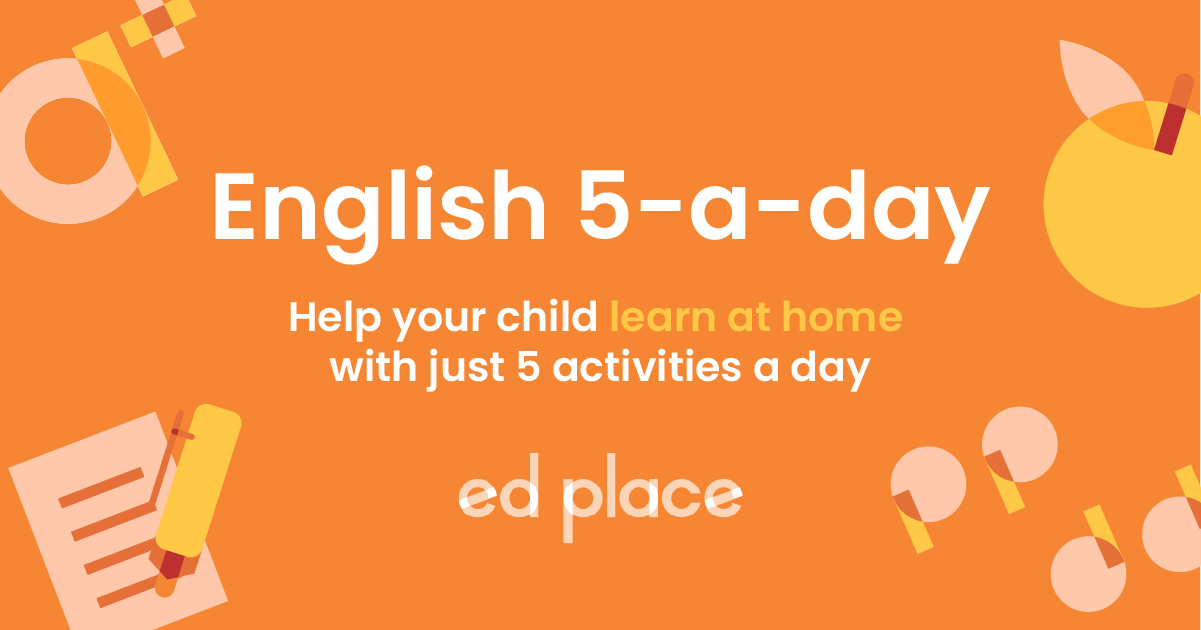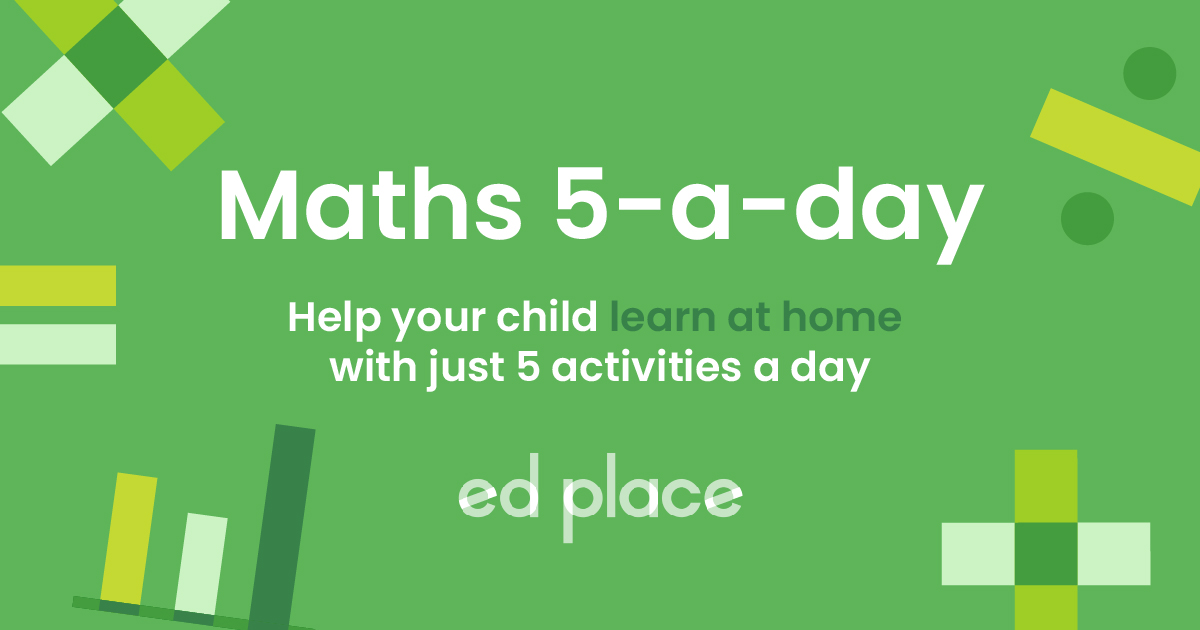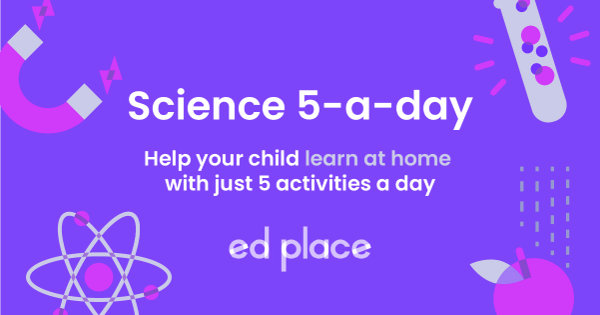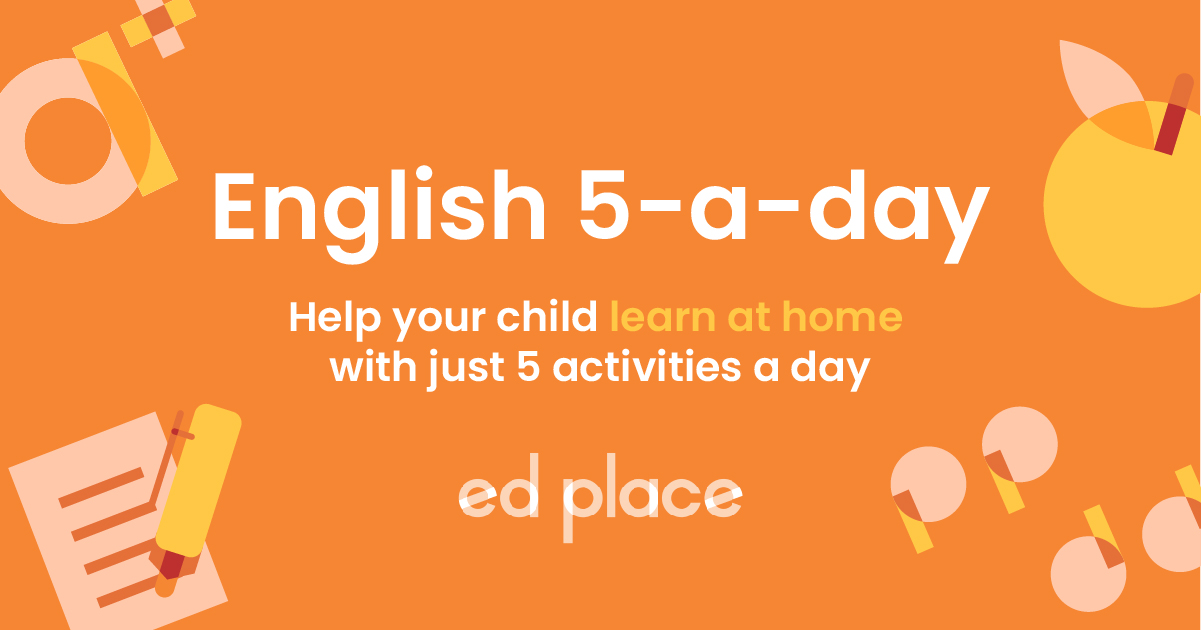
EdPlace's Key Stage 3 home learning English lesson: Using Ambitious Vocabulary
Looking for short lessons to keep your child engaged and learning? Our experienced team of teachers have created English, maths and science lessons for the home, so your child can learn no matter where they are. And, as all activities are self-marked, you really can encourage your child to be an independent learner.
Get them started on the lesson below and then jump into our teacher-created activities to practice what they've learnt. We've recommended five to ensure they feel secure in their knowledge - 5-a-day helps keeps the learning loss at bay (or so we think!).
Are they keen to start practising straight away? Head to the bottom of the page to find the activities.
Now...onto the lesson!
How can you make your writing more powerful?
We write to express different ideas, emotions and thoughts. Sometimes children communicate their ideas successfully and other times they can be lost in translation. Helping a child develop an extensive vocabulary provides them with the tools needed to choose the appropriate word for a particular context – making good writing even more powerful. Why not check out our step by step approach? When your child produces a piece of writing, helping them to branch out with their vocabulary will not only help them to choose the best word for the job, it will make their writing more enhanced and interesting. At EdPlace we’re surrounded by a team of experts who communicate these concepts with children on a day-to day basis, and we’re ready to share their teaching gems with you. Follow the five steps below to aid your children in making their writing more sophisticated and emotive.
Every good lesson has a purpose or an objective. We’re confident by the end of this guide your child will be able to:
1) Understand why it’s important to use ambitious vocabulary
2) Recognise words which need improving
3) Create a piece of writing that uses some really impressive language (If they've really cracked it!)
Step 1: Identifying synonyms
Before we try to jazz up some writing, it’s important to check that your child understands what some key terminology means. Here are two simple strategies to improve a student's vocabulary:
1) Use word webs to expose students to new synonyms for common words. A synonym is a word that means exactly or nearly the same as another word e.g. funny, humorous, hilarious. To create a word web all you need to do is write one word on a page, then have the student add lines that branch out, writing different synonyms they can think of at each end. You could even enlist the help of a thesaurus and see what new sophisticated words you can discover together!
2) Explain the word’s connotation. This is the link between a word and how it makes the reader feel e.g. instead of using words like ‘said’, ask your child to think about how the character is feeling. If a character feels sad, then ‘said’ could be changed to ‘whispered’ or 'cried'. This way, a student's writing will become more expressive in tone.
Step 2: Why do we use ambitious vocabulary?
Before asking your child to use ambitious vocabulary, it is important for them to understand why this will improve the effect of their writing. The following paragraph relies heavily on what we call ‘Tier 1’ words – these are the basic words of everyday language.
I was walking down the road and I saw a nice house with a nice garden. The house was big and the garden was long, with two young girls playing at the end of it. “Hello” I said, try to get their attention.
Does this paragraph evoke any feeling in you when reading it? Are you able to visualise the scene vividly in your mind's eye? If no, why?
Step 3: Implement Synonyms
Once your child has understood the importance of using ambitious vocabulary, they can then practice using synonyms and altering the connotations of words. If we look at this paragraph again, we can see how much more interesting it becomes to read when we use ambitious vocabulary.
I was sauntering down the road and I saw a magnificent house with a meticulous garden. The house was grand and the garden was meandering, with two youthful girls playing at the end of it. “Hello” I bellowed, try to get their attention.
The reader now knows that the narrator is travelling down the road in a slow, relaxed manner making the tone of the scene serene. We also have an insight into what the house looks like; fancy with a long winding garden, suggesting how awe-inspiring the house is!
Step 4: Putting it into Practice...
Now, it's over to you to have a go at identifying appropriate synonyms to swap with these common words below (highlighted in orange). Try and use synonyms that express a tone, or provide the reader with some new information about the scene being described.
1) The empty beach was very quiet.
2) I was reluctant to enter the scary house.
3) Reluctantly, I entered the busy shopping centre.
4) Everyone likes him because he is so friendly.
5) “I ate the last cookie”, he said.
Step 5: Activities
Now, you’ve covered this together why not put this to the test and assign your child the following 5 activities in this order.
All activities are created by teachers and automatically marked. Plus, with an EdPlace subscription, we can automatically progress your child at a level that's right for them. Sending you progress reports along the way so you can track and measure progress, together - brilliant!
Activity 1 - Standard and Non-standard English: Knowing the Difference
Activity 2 - Revise Homophones 1
Activity 3 - Revise Your Adjectives: Classification
Activity 4 - Understand Word Meaning: Using Context Clues
Activity 5 - Use Precise Vocabulary
Answers (not exhaustive):
1) Peaceful, tranquil, silent
2) Eerie, unnerving, sinister
3) Hectic, swarming, bustling
4) Gregarious, affable, cordial
5) Admitted, confessed, mumbled
Keep going! Looking for more activities, different subjects or year groups?
Click the button below to view the EdPlace English, maths, science and 11+ activity library








